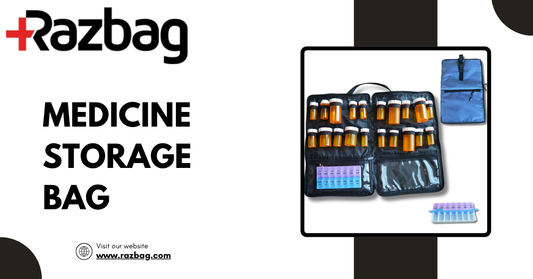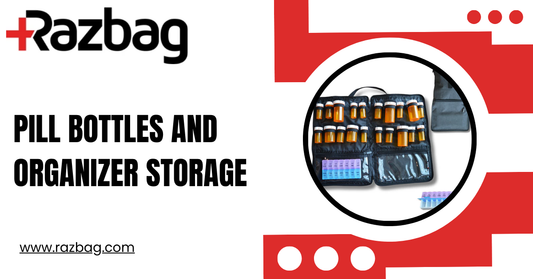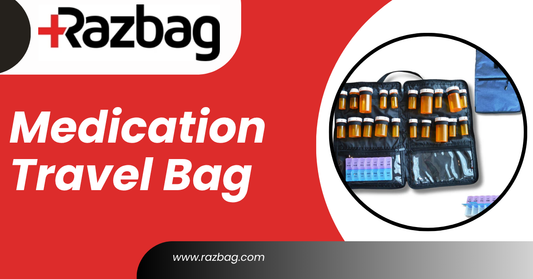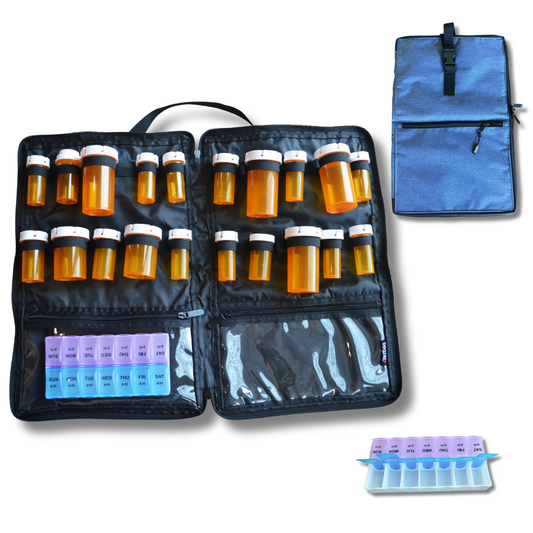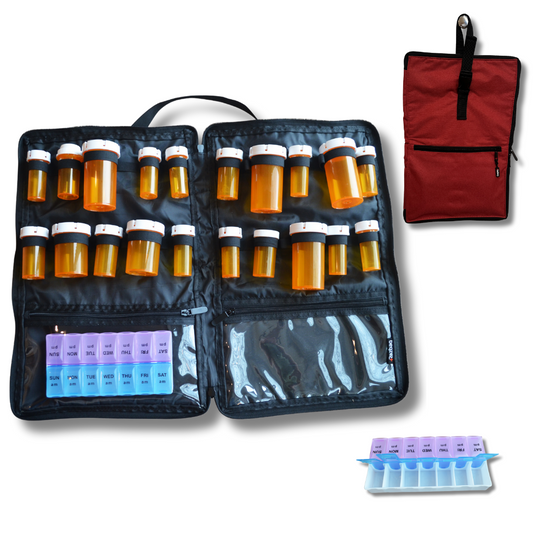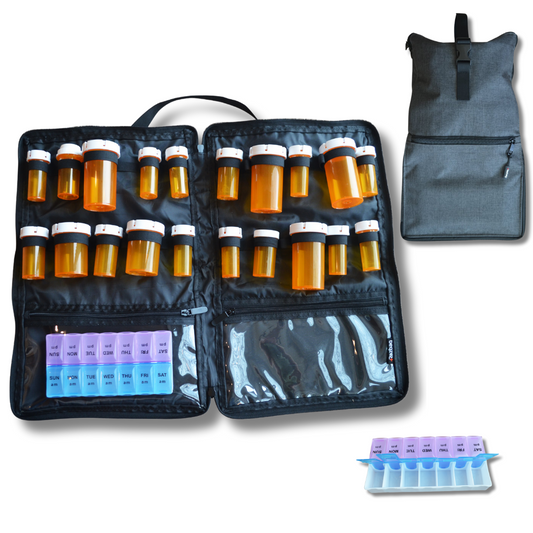Empowering Success: A Digital Nomad’s Guide to Thriving with a Disability
Embracing the digital nomad lifestyle opens a world of opportunities, blending work and travel into an enriching experience. However, for individuals with disabilities, this path can seem daunting. Despite the challenges, with the right strategies and tools, it's entirely possible to navigate this exciting journey successfully. This guide aims to empower those with disabilities, covering key areas such as finding suitable work, self-marketing, securing accessible accommodations, choosing friendly locations, setting up a comfortable workspace, managing health care needs, and enhancing skills through online education.
Razbag offers a variety of medication bags designed to keep prescription medications organized and secure.
Finding Work That Suits Your Needs
The cornerstone of a digital nomad’s life is remote work. For people with disabilities, finding the right job involves looking for roles that offer not just skill alignment but also flexibility and understanding. Remote work opportunities have grown exponentially, and platforms like We Work Remotely, FlexJobs, and LinkedIn offer a plethora of options. Tailor your job search to positions that allow you to work at your own pace and accommodate your specific needs. Be transparent about your disability to ensure the role and company culture are a good fit. This approach will help in finding an employer who values diversity and inclusivity.
Boosting Your Skills with an Online Degree
Pursuing an online degree is a strategic move for digital nomads with disabilities, offering a path to enhance career prospects while maintaining their nomadic lifestyle. For instance, acquiring a degree in a field like cybersecurity equips you with valuable skills in safeguarding digital infrastructures, a sector that's not only booming but also highly conducive to remote work. The flexibility of an online cybersecurity degree allows for a seamless integration of study and work, enabling you to advance your qualifications without compromising your professional commitments.
Marketing Yourself Skillfully
Your personal brand is a critical tool in the digital nomad toolkit. Create a compelling online presence through a professional website, updated LinkedIn profile, and active engagement on social media platforms relevant to your industry. Use these platforms to showcase your skills, accomplishments, and unique perspective as a professional with a disability. Emphasize your strengths and resilience, which are particularly appealing in the remote work environment. Networking, both online and in person, can also open doors to new opportunities and collaborations.
Finding Accessible Accommodations
One of the biggest challenges for a digital nomad with a disability is finding accommodations that meet their accessibility needs. Research is key. Utilize platforms like Airbnb, which offer filters for accessibility features, and seek advice from online communities and forums that focus on accessible travel. Don’t hesitate to contact property owners directly to inquire about specific accommodations and to ensure that your needs will be adequately met.
Choosing a Disability-Friendly Location
Not all destinations are created equal when it comes to accessibility. When planning your travels, consider the infrastructure, culture, and overall accessibility of potential destinations. Cities with robust public transportation systems, well-designed urban environments, and a general awareness of and sensitivity to disabilities tend to be more accommodating. Research the experiences of other travelers with disabilities and consult resources like the Lonely Planet’s Accessible Travel Guide for insights.
Creating a Comfortable and Accessible Workspace
Your productivity and comfort heavily depend on your workspace. Invest in ergonomic equipment and assistive technologies that cater to your needs. Consider portable solutions like adjustable laptop stands or ergonomic travel keyboards if you change locations frequently. Ensure that your workspace, whether it’s a home office, co-working space, or a cafe, is accessible and comfortable for long periods of work.
Managing Health Insurance and Medical Care
Navigating health insurance and medical care is crucial for a digital nomad with a disability. Opt for international health insurance plans that cover pre-existing conditions and provide comprehensive coverage globally. Research the healthcare facilities in each of your destinations and keep a list of emergency contacts. It’s also advisable to have a plan for acquiring any regular medications or supplies you may need.
Becoming a successful digital nomad with a disability is an attainable goal. It requires careful planning, resilience, and the right strategies. By securing appropriate work, marketing your unique skill set, finding accessible living and working spaces, ensuring good health care, and pursuing further education, you can overcome the challenges and reap the rewards of this dynamic lifestyle. Remember, with determination and the right approach, the digital nomad life can be both empowering and fulfilling, opening doors to a world of new experiences and professional growth.
By: Lisa Walker

